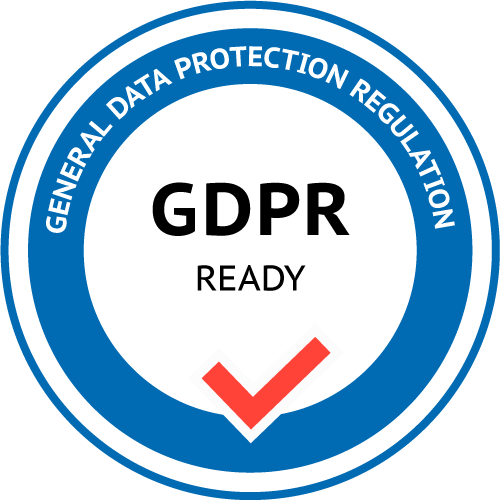The art of effective controllership goes beyond number crunching; it requires harnessing analytical prowess, strategic thinking, and strong leadership to provide invaluable insights that drive informed decision-making.
An effective controller serves as the financial compass of an organization, ensuring that financial operations are conducted with precision and compliance. Their role extends far beyond accounting: they bridge the gap between financial data and business strategy, offering strategic recommendations to optimize performance, reduce risks, and maximize profitability.
Don’t forget: Controllers and accountants don’t have the same responsibilities
While both controlling and accounting are essential components of financial management, they serve distinct functions and focus on different aspects of financial information.
Accounting primarily involves recording, classifying, and summarizing financial transactions to produce accurate financial statements. Accountants ensure that financial records are maintained according to Generally Accepted Accounting Principles (GAAP) or International Financial Reporting Standards (IFRS), depending on the jurisdiction.
Controlling focuses on analyzing financial information, providing insights, and supporting decision-making processes. Controllers use financial data to evaluate the company’s performance, identify trends, and develop strategies for improving profitability and efficiency.
Financial Controllers Need To Be Effective
In short, they need to be effective because their performance directly influences the company’s financial stability, decision-making, risk management, compliance, efficiency, team dynamics, and stakeholder relations. Let’s break down each of these reasons:
Accurate financial reporting
Effective controllers maintain a high level of accuracy in financial reporting by implementing robust internal controls, ensuring timely reconciliation of accounts, and providing oversight in the preparation of financial statements. Accurate financial reports are essential for management, investors, and regulatory authorities to assess the company’s financial performance. Inaccurate financial information can lead to misinformed decisions, loss of investor confidence, and potential legal consequences. Therefore, a controller must be very effective in ensuring accurate financial reporting because it is crucial for the overall success and credibility of the organization.
Strategic decision-making
Controllers play a vital role in strategic decision-making by providing data-driven insights that help management identify growth opportunities, optimize resource allocation, and evaluate the potential impact of various business decisions. An effective controller possesses strong analytical skills, enabling them to interpret complex financial data, forecast future trends, and present actionable recommendations to drive the organization’s strategic goals. Their ability to translate financial information into meaningful insights significantly influences the company’s ability to make informed, strategic decisions that contribute to long-term success.
Risk management
Effective financial controllers proactively identify and manage a wide range of financial risks, including market risk, credit risk, liquidity risk, and operational risk. They develop and implement risk management strategies, such as diversifying investments, establishing credit policies, and monitoring cash flow, to minimize the potential impact of these risks on the organization’s financial stability. By effectively managing financial risks, controllers help safeguard the company’s assets, protect shareholder value, and ensure the organization’s resilience in the face of economic uncertainties or market fluctuations.
Compliance
Financial controllers are responsible for ensuring that the organization complies with all relevant financial regulations, tax laws, and accounting standards. This involves staying up-to-date with regulatory changes, implementing appropriate policies and procedures, and conducting regular internal audits to verify compliance. An effective controller’s diligence in maintaining compliance helps the organization avoid costly fines, penalties, and reputational damage that could result from non-compliance.
Cost control and efficiency
Effective controllers continuously seek opportunities to improve operational efficiency and reduce costs by streamlining processes, implementing cost-saving measures, and leveraging technology to automate routine tasks. They collaborate with other departments to identify areas for improvement and develop strategies to optimize resource utilization across the organization. By driving cost control and efficiency initiatives, financial controllers contribute to the company’s bottom line, enhance its competitive advantage, and support its long-term profitability.
Stakeholder relations
Financial controllers interact with various internal and external stakeholders, including auditors, investors, banks, and regulators. Their effectiveness in managing these relationships can significantly impact the organization’s access to capital, creditworthiness, and overall reputation in the market. Effective controllers understand the importance of transparent communication, timely reporting, and responsiveness in maintaining strong stakeholder relations. By building trust and credibility with stakeholders, controllers help secure the organization’s financial resources, maintain its reputation, and support its growth objectives.
What Makes a Good Controller?

Effective controllers possess a unique blend of skills and characteristics that enable them to excel in their role. Some of the most important qualities include:
- Strong analytical skills: A proficient controller must have a solid understanding of accounting principles, tax laws, and financial reporting standards. They must be well-versed in using accounting software and other tools to analyze and interpret financial data.
- Attention to detail: Ensuring the accuracy and reliability of financial information is a key responsibility of controllers, so they must have a keen eye for detail. They should be able to spot errors and discrepancies quickly and take appropriate action to correct them.
- Strategic thinking: An effective controller should possess a strategic mindset to support the organization’s short-term and long-term goals. The individuals should have the ability to recognize both possible risks and opportunities and should offer beneficial insights to assist the organization in meeting its goals.
- Communication skills: As a key member of the management team, a controller needs to communicate complex financial information clearly and concisely to various stakeholders and be able to build strong relationships with colleagues, external auditors, and regulators.
- Leadership skills: To ensure efficient operations in the accounting department, a competent controller must possess leadership qualities and be capable of developing their team. They should also have expertise in delegating tasks, establishing performance standards, and giving feedback that helps improve performance.
- Interpersonal skills: As leaders of the finance team, controllers must have strong interpersonal skills to motivate, mentor, and manage staff while building strong relationships with other departments and external stakeholders.
- Ethical integrity: Controllers are responsible for ensuring compliance with financial regulations and maintaining high ethical standards, which requires a strong sense of integrity and commitment to professional conduct. They should be committed to upholding the organization’s values and promoting a culture of transparency and accountability.
How to Become a More Effective Financial Controller
For those who are striving to improve their role as a financial controller, it’s essential to understand the various facets of your job. It’s vital to recognize what makes an excellent controller and what necessary steps you can take to improve your effectiveness. Maintaining perfect records, keeping up with the latest industry trends, being organized, and exhibiting excellent communication skills are all important components of the job.
Making a conscious effort to hone in on these attributes can lead to becoming a more efficient and effective financial controller. Here are some recommendations that can help you increase your effectiveness:
- Embrace technology: In today’s digital age, leveraging financial technology solutions can significantly boost your efficiency. Explore software and tools that streamline financial processes, automate repetitive tasks, and provide real-time insights. By embracing technology, you can devote more time to strategic analysis and decision-making.
- Continuous professional development: The financial landscape is constantly evolving, with new regulations, accounting standards, and industry best practices emerging regularly. Invest in continuous professional development by attending relevant seminars, workshops, and webinars. Engaging in networking opportunities and obtaining additional certifications will keep you at the forefront of financial knowledge.
- Strengthen interdepartmental collaboration: Foster strong relationships with other departments, such as operations, sales, and marketing. Proactively seek insights from these teams to gain a comprehensive understanding of the business. Collaborating with cross-functional colleagues will provide valuable perspectives and enhance your ability to align financial strategies with broader organizational goals.
- Enhance communication skills: Effective communication is essential for financial controllers. Strengthen your communication skills, both written and verbal, to effectively convey financial insights to various stakeholders. Simplify complex financial concepts and ensure clear, concise reporting. Cultivate strong relationships with stakeholders, including executives, auditors, and team members.
- Improve data analysis and reporting: Sharpen your data analysis skills to provide insightful reports that drive decision-making. Utilize advanced data analytics techniques to identify trends, patterns, and anomalies. Present financial information in a visual and easily understandable format, facilitating quick and accurate comprehension for stakeholders.
- Develop leadership skills: As a financial controller, leadership skills are crucial for guiding and motivating your team. Enhance your leadership abilities by mentoring junior staff, delegating responsibilities effectively, and fostering a culture of collaboration and continuous improvement within the finance department.
- Incorporate ethical and professional standards: Upholding ethical and professional standards is essential for any financial controller. Demonstrate integrity in financial reporting, compliance with regulations, and adherence to the highest ethical standards. Lead by example to inspire trust and confidence among team members and your key stakeholders.








